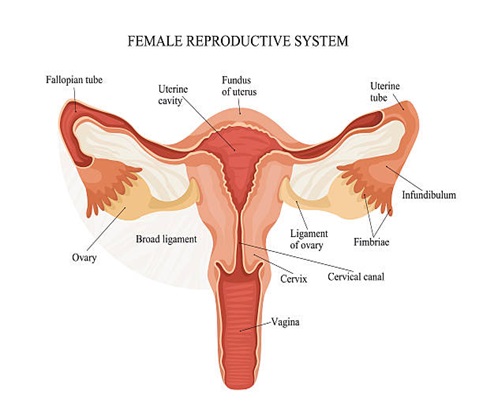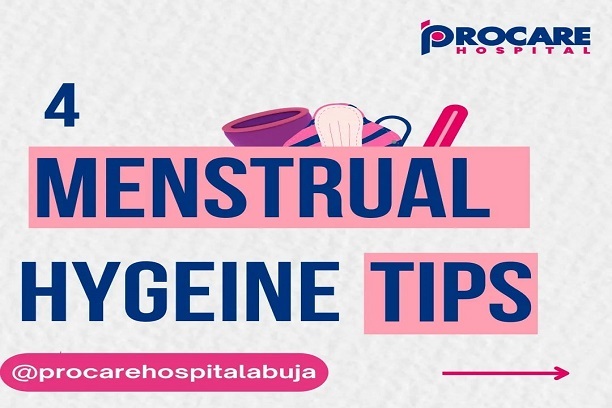MENSTRUAL HYGIENE
Menstrual hygiene day is an annual awareness day celebrated on May 28 every year to highlight the importance of good menstrual care as well as the issue faced by those who don’t have access to sanitary products.
The theme for this year’s Menstrual Hygiene Day is “Making Menstruation a Normal Fact of Life by 2030”. The overarching goal is to build a world where no one is held back because they menstruate, by 2030. This goal can be achieved by;
- Breaking the taboos and stigma surrounding menstruation
- Raising awareness about the challenges regarding access to menstrual products
- Education about menstruation
- Mobilizing the funding required for action
Overview of Menstruation
Menstruation is the monthly shedding of the lining of a woman’s uterus. Menstruation is also known as menses or period. The menstrual blood flows from the uterus through the cervix and out of the body through the vagina.

Menstrual Age Range
This starts between ages of 10 to 19 and lasts to around 50 years.
Menstrual Cycle
Menstrual cycle is counted from the first day of one’s period to the first day of the next period. The average cycle is 28 days. It can however range from 21 to 35 days.
- Menstrual Phase: This begins from the first day of menses and last till the bleeding ceases.
- Follicular Phase: This begins on the first day menstruation and ends during ovulation
- Ovulation Phase: It occurs at day 14 in a 28 menstrual cycle. It may vary depending on the cycle length.
- Luteal Phase: This phase begins on day 15 and lasts until the end of the cycle (In a 28 day cycle).
Menstrual Hygiene Tips
- Pick a Sanitation Method of Your Choice
There are different types of sanitation methods, examples being sanitary napkins, tampons and menstrual cups. However, the sanitary material must be clean.
- Prompt Changing of Used Sanitary Napkins
Sanitary napkins should be changed every 4-6hours or as often as needed, to feel comfortable and prevent bad odor or infections.
- Bodily and Environmental Cleanliness
It is very important that we take additional steps to take good care of ourselves and our external environment. Below are highly recommended steps in ensuring that your physical hygiene is maintained;
- When taking your regular shower, use a lot of water to clean/wash the genital area. Avoid the use of vaginal products and soap;
- Practice washing your hands regularly, before and after changing menstrual material
- Prompt and Safe Disposal of Sanitary Products.
This is of paramount importance. It is necessary that you practice;
- Disposing sanitary products immediately after you change
- Wrapping it properly so as to prevent the spread of any infection or odor
- The habit of disposing these products in waste bins, and not in toilets.
- Washing your hands properly after disposing these products
When to See a Doctor
It is highly recommended that you see a doctor when;
- You experience excessive pain, cramping, nausea and discomfort during your periods
- You miss 3 or more periods in a row
- Your flow is heavier or lighter than usual
- Your period lasts more than 7 days
- Your period occurs more than 35 days apart
- Your period sets in more than 21 days apart
- Bleeding between periods
- You haven’t started menstruating by the age of 16
MENSTRUAL MYTHS AND TABOOS
| MYTHS | FACTS |
| Menstrual blood is impure | This blood is just like the normal blood that comes out from the body during bleeding. Just like blood from any part of the body, when it comes out, it decomposes with little time and thus emanates an odor. |
| Periods are shameful | Periods are natural occurrences and nothing to be shameful about |
| Girls on their periods should be made to sleep in separate rooms | Menstruation is not contagious and causes no harm to anyone |
| Woman should not eat spicy foods | The food you eat has no influence on the flow of your periods. However, if you are prone to acid reflux and gas issues, you should avoid the foods that contribute to those conditions |
| Girls having their periods should not touch plants, else the plants will die | Plants do not discriminate |
| Sanitary products should be kept private and covered when purchasing | Purchasing sanitary products is something you shouldn’t be ashamed about. It is more like purchasing soap or toothpaste |
Conclusion
Lack of essential menstrual hygiene products like sanitary pads and toiletries is having serious effects on the lives of women in rural areas. It is therefore pertinent that organizations, corporate bodies and government come together to work towards improving menstrual health and hygiene which will not only benefit girls and women who menstruate but the entire society at large. Together we can make menstruation a normal fact of life by 2030 by helping young vulnerable girls manage their menstruation with dignity and pride.
Written by Dr. Stephanie

